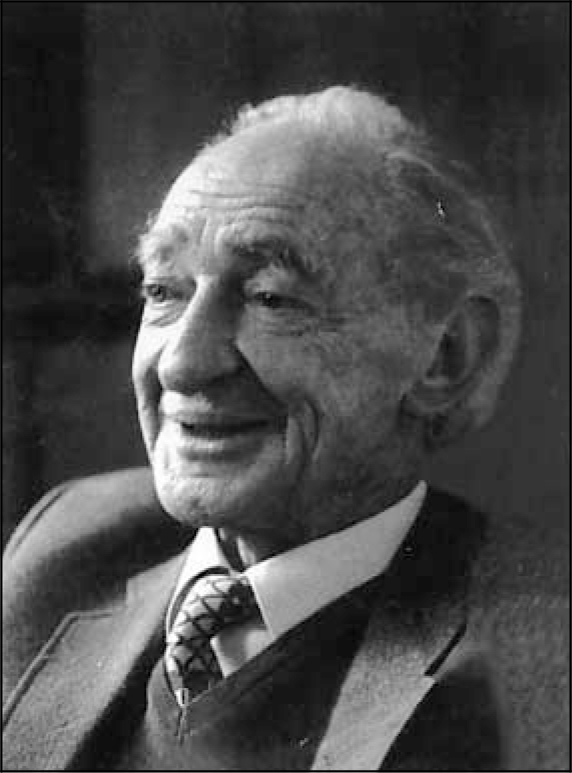Edgar was born in Johannesburg, South Africa, on 28 March, 1918, and died aged 84 in London on 17 October, 2002, after a long and distressing cardiac illness.

He was educated at King Edward's School in Johannesburg and studied medicine at Witwatersrand University, where he qualified MB, ChB in 1942. After the conventional jobs in South Africa, he grabbed the first opportunity after the War to widen his horizons and to gain graduate experience in London. This he fulfilled with a six-month stint at Hammersmith Graduate Hospital.
In 1948, he was joined in London by his fiancée, Alison Jacques, a physiotherapist by profession, and they were married at Hampstead Registry Office in 1949. After not very long, Edgar and Alison succumbed to the magnetism of London, and were persuaded to forego the sunny climes of Africa for the cold and culture of England and beyond.
Again, in 1949, Edgar decided that psychiatry was his true vocation and to that end he joined me as a registrar at Horton Hospital, Epsom, thus beginning an association as a colleague and firm friend to survive for over half a century.
Quite fortuitously, a cottage, formerly occupied by a gate-keeper on the Horton estate, became vacant and his post abolished. The newly-weds jumped at the opportunity to take it over and, with the assistance of Edgar's DIY expertise plus Alison's impeccable taste the humble cottage was converted into a warm, welcoming abode. West Cottage as it was styled, not only served to bring up the Udwin's three children, but became an important focal point for social events at Horton.
For the duration of World War II, Horton had done duty at a War Hospital and at the time Edgar joined us, the evacuation of the military was just about completed. The opportunity arose, therefore, to convert the shell of a war hospital into a modern psychiatric hospital. This was a formidable challenge and that we succeeded was in no small measure, due to Edgar's initiative and hard work.
Edgar stayed at Horton for 13 years — time for him to move on. A vacancy for a consultant arose at Broadmoor Specialist Hospital which, with his interest in forensic psychiatry, seemed eminently suitable. I encouraged him to apply. He did, and I was not in the least surprised when he was selected.
A major attraction of working at Broadmoor was that it was under the leadership of Dr Patrick McGrath, CB, CBE, one of England's most distinguished forensic psychiatrists. Broadmoor, at that time, was undergoing the transition from an old-time penal institution to a vibrant, modern psychiatric hospital. As he had been at Horton, Edgar was in step with the transition and, as he had at Horton, made a valuable contribution.
So valuable, indeed, was his contribution that when Dr McGrath retired, Edgar was persuaded to become director, a post he held with distinction until his retirement in 1983.
If I were to be asked to pin-point Edgar's finest achievement, I would state categorically that he had been instrumental in the discharge of an army of long-stay patients into the community, or to conventional mental hospitals, who could no longer pose a danger to the public.
Edgar left behind a devoted family, his wife Alison and his three children, Mark, Candy and Emma.



eLetters
No eLetters have been published for this article.